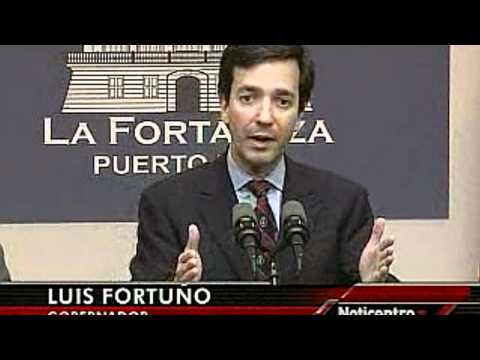Four years ago Puerto Rico had a worse fiscal crisis than California, Illinois, or any other state.
Today Puerto Rico’s finances are in such good shape that earlier this year the U.S. territory was able to slash taxes to attract wealthy individuals. Puerto Rico’s lawmakers also slashed taxes on business income earned from outside the territory.
“This administration is trying, no question,” said Tom Stringer, a business site selection expert and principal at Ryan LLC in New York City. “States like New York, California, and Illinois have squandered such golden opportunities. Puerto Rico today is making opportunities.”
Export Services Act
Puerto Rico’s Export Services Act extends, to a broad spectrum of service industries, income tax rates as low as 3 percent and not exceeding 4 percent on income derived from customers outside Puerto Rico (hence “export services”).
This compares with total tax rates (federal, state, and local) elsewhere in the United States of at least 35 percent for the federal corporate income tax. Many states also impose their own corporate income tax on top of that. Puerto Rico is not subject to federal taxes.
Distributions from earnings and profits are 100 percent tax-free in Puerto Rico. The territory also provides a 100 percent exemption from property taxes for the first five years of operation, and a 90 percent exemption thereafter until 2035 for certain types of businesses.
Individual Investors Act
To attract more high-net-worth individuals, the island’s Individual Investors Act provides qualifying individuals a 100 percent exemption from Puerto Rico taxes on all interest and dividends and on all long-term and short-term capital gains accrued after the individual becomes a resident of Puerto Rico. To be considered a resident, a person must live there at least 183 days a year.
“To make it even more attractive for those individuals who may be looking to relocate to Puerto Rico to be those service providers, or perhaps retirees or active day traders, or anybody who has a significant portion of their income generated from passive income, which would include dividends, interest income, and short- and long-term capital gains, we are offering basically a zero percent tax rate for new residents of Puerto Rico until 2035,” said Edward Calvesbert, deputy secretary of economic development and commerce for Puerto Rico.
Neither act would have been possible without a huge turnaround in the island’s finances, said Calvesbert.
He said Puerto Rico’s budget deficit for Fiscal Year 2009 was the highest in the nation, a stunning 43.6 percent of all revenues.
Spending Cuts, Tax Cuts
For the current fiscal year which began July 1, the budget deficit has shrunk to just 3.8 percent of revenues, from $3.306 billion in Fiscal Year 2009 to $333 million. The island’s credit rating also has markedly improved from near junk status.
“Improving our budget and credit rating was really a key fiscal platform that needed to be put in place in order to provide these incentives,” Calvesbert said. “Those two go hand in hand. You can’t reduce taxes if you don’t reduce government spending.”
Puerto Rico Gov. Luis Fortuno (R) has led the island’s lawmakers in slashing government spending. He took office in 2009 and took a 10 percent pay cut, required agency heads to take a 5 percent cut, froze all salaries for two fiscal years, reduced political appointments by 30 percent, and got rid of government cell phones and credit cards.
But the biggest move was cutting government employee ranks by 23,000 through voluntary and mandatory measures, achieving a 17 percent reduction in total payroll. An astonishing 60 percent of the workforce had been in government.
The Fortuno administration also won support for the largest tax cut package in Puerto Rico’s history, reducing business taxes an average of 30 percent and 50 percent for individuals.
Early, Quickly
“The important thing was to do it early in the term, do it quickly, and hope results speak for themselves. That’s what we’re seeing in Puerto Rico,” Calvesbert said. “The right decisions were made early in this term. We’ve created 22,000 jobs in the last 12 months. Our economy’s growing for the first time in six years. Even the longer-term competitiveness rankings are also moving in the right direction. We went up six positions in the World Economic Forum competitive rating last year and hope to repeat something like that again this year.”
Stringer said Puerto Rico long has been known as “a good place for pharmaceutical and medical devices companies to do work.” The tax reforms enacted earlier this year to attract high net-worth individuals and promote business services exports are “changing the scope of what they’re looking for. They want decision-makers, major league engineers and entrepreneurs. The Puerto Rico government is telling these people we’re going to let you keep your money, create jobs, do your thing.”
‘Letting Them Keep More’
When he discusses business relocations with clients and the possibility of moving to Puerto Rico, Stringer stresses the island’s U.S. legal protections, good infrastructure, beautiful weather, skilled workforce, and the turnaround the island’s government has made toward fiscal responsibility and encouraging entrepreneurship.
“Puerto Rico is saying to job creators, ‘Come here,” Stringer said. “They’re saying we want the money managers who want to live in a warm place, have significant incentives, and deploy that capital. They can maintain another residence, because Puerto Rico has a 183-day rule. They’re saying we’re going to keep and attract these people by letting them keep more of their money here than anywhere else.”





